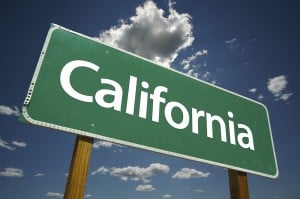State Bar Gets Warmer Reception From California Auditor
A new state audit says increasing attorney fees is warranted, though at a smaller amount than the bar has proposed.
 In recent years, the headlines of the state auditor’s reports about the State Bar of California have been quite scathing.
In recent years, the headlines of the state auditor’s reports about the State Bar of California have been quite scathing.
One claimed the agency “Has Not Consistently Protected the Public Through Its Attorney Discipline Process and Lacks Accountability.”
Another said the bar’s “Lack of Transparency Has Undermined Its Communications With Decision Makers and Stakeholders.”

The Business Case For AI At Your Law Firm

However, the title of this year’s report released on Tuesday was much kinder, as was the report itself. The headline said the bar “Should Balance Fee Increases With Other Actions to Raise Revenue and Decrease Costs.”
Auditor Elaine Howle concluded the state Legislature should raise the annual fees the State Bar is authorized to charge lawyers, though at a significantly reduced amount than the agency has suggested.
Rather than the $813 in fees the bar proposed active lawyers should pay next year, the auditor recommended increases that would boost overall fees to $525. Lawyers are currently required to pay less than $400.
The bar has been actively campaigning for what would be the first increase in the $315 base fee in two decades to help it address growing budget deficits and undertake necessary initiatives.
Sponsored

Navigating Financial Success by Avoiding Common Pitfalls and Maximizing Firm Performance

Legal AI: 3 Steps Law Firms Should Take Now

Generative AI In Legal Work — What’s Fact And What’s Fiction?


Is The Future Of Law Distributed? Lessons From The Tech Adoption Curve
In the bar’s fee proposals the auditor reviewed, the agency included plans to hire 58 new employees to help reduce its backlog of attorney misconduct complaints.
The auditor recommended a more gradual increase in staff, suggesting the agency be given funds to add up to 19 positions in its Office of Chief Trial Counsel next year.
“Adding 58 new positions in 2020 would also be disruptive, and consistent vacancies in the trial counsel’s office makes filling so many positions in 2020 unrealistic,” the audit said.
In addition, the bar proposed a one‑time $250 special assessment to fund IT and capital improvement projects it will carry out over the next five years. The fee would also help the agency replenish its general fund reserve. The auditor recommended just $41 for the special fee.
“Although we agree that State Bar should be able to plan the projects with the assurance that it will have full funding, we recommend spreading the assessment fee over five years and adjusting it each year as necessary to ensure that it aligns with reasonable upcoming and current project costs,” the report said. “We also recommend a smaller total assessment fee because some of the IT and capital improvement projects the fee would pay for are unnecessary at this time or too early in the planning phase to justify immediate funding.”
Sponsored

The Business Case For AI At Your Law Firm


Is The Future Of Law Distributed? Lessons From The Tech Adoption Curve
The auditor highlighted other ways the bar could increase revenue, such as maximizing the leasing of unused portions of its San Francisco headquarters and increasing the rates its charges tenants.
As for efforts to reduce spending, the auditor lauded the agency for developing performance measures.
“Measuring performance is an important step for State Bar because it could lead to increased efficiency, which in turn could translate to decreased costs and reduced licensing fees,” the report said.
The auditor also recommended the Legislature move away from a process in which it must approve bar fees annually.
Instead, Howle’s office said providing multiyear approval of fees would be beneficial for both the bar and licensed attorneys.
“For [the] State Bar, the lack of consistent revenue makes implementing long‑term projects, such as replacing its aging technology systems, riskier because it has no guarantee that funding for these types of projects will continue,” the audit said. “Further, in years when the Legislature did not pass a licensing fee bill, such as 2016, [the] State Bar has had to make sudden staffing reductions in the trial counsel’s office, compromising its ability to process complaints against dishonest attorneys.”
The State Bar welcomed the audit results.
“We are pleased that the California State Auditor affirmed the need for a substantial increase in the licensing fee, the State Bar’s primary source of revenue,” Bar Executive Director Leah T. Wilson said.
“We have made significant strides in reforming the State Bar, and the State Auditor’s report only affirms that we’ve put our house in order,” said Jason P. Lee, chair of the bar’s Board of Trustees.
How the Legislature will respond to the auditor’s recommendations remains to be seen. The bar’s funding legislation for 2020, SB 176, does not currently include a fee increase. The Senate Judiciary Committee approved the bill Tuesday as part of its consent agenda.
Meanwhile, the close scrutiny of the bar’s finances by other bodies in Sacramento will continue. The Legislative Analyst’s Office will issue its own report on the bar’s use of fee revenue by July 1.
 Lyle Moran is a freelance writer in San Diego who handles both journalism and content writing projects. He previously reported for the Los Angeles Daily Journal, San Diego Daily Transcript, Associated Press, and Lowell Sun. He can be reached at lmoransun@gmail.com and found on Twitter @lylemoran.
Lyle Moran is a freelance writer in San Diego who handles both journalism and content writing projects. He previously reported for the Los Angeles Daily Journal, San Diego Daily Transcript, Associated Press, and Lowell Sun. He can be reached at lmoransun@gmail.com and found on Twitter @lylemoran.







